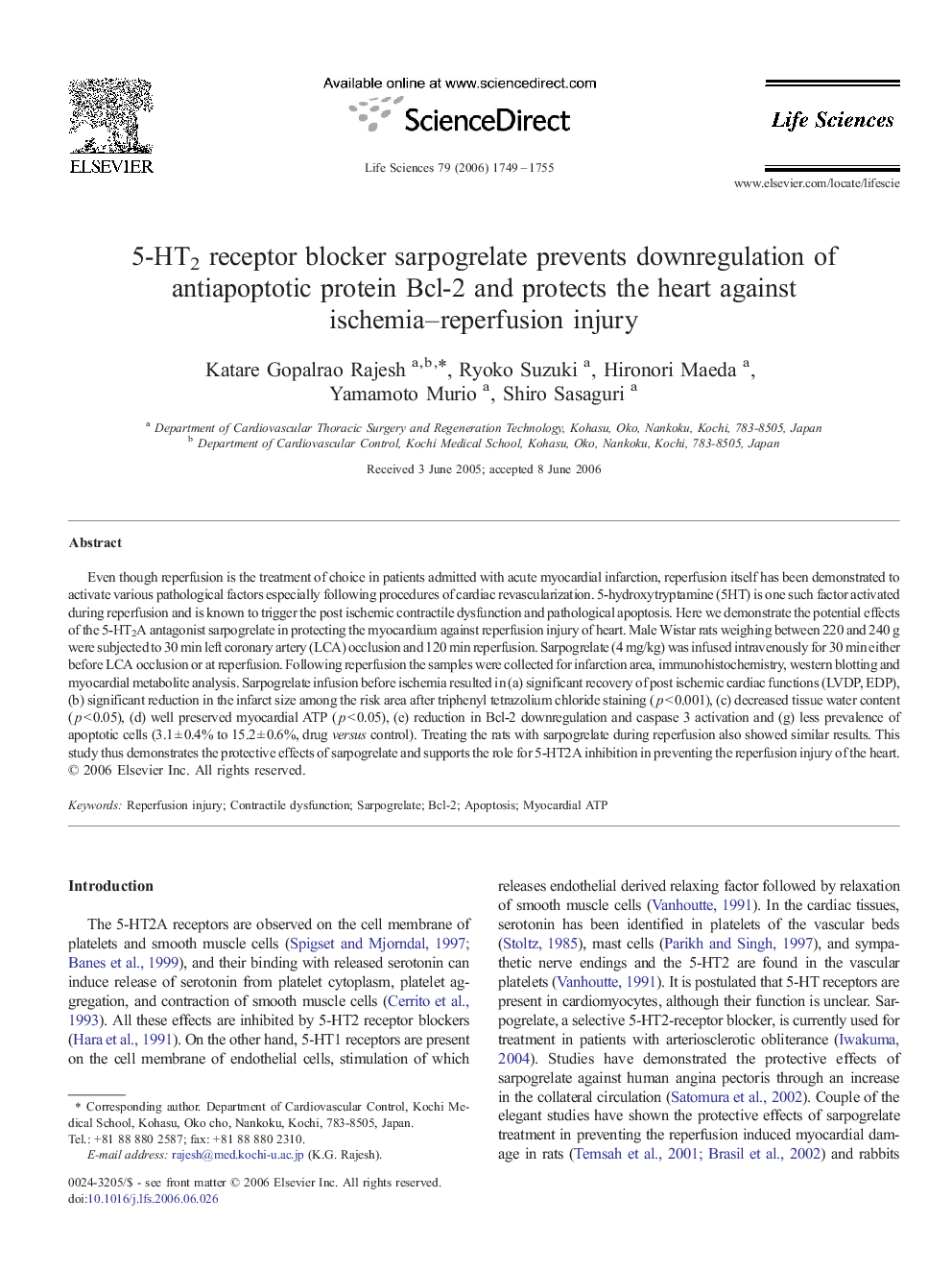| Article ID | Journal | Published Year | Pages | File Type |
|---|---|---|---|---|
| 2554179 | Life Sciences | 2006 | 7 Pages |
Even though reperfusion is the treatment of choice in patients admitted with acute myocardial infarction, reperfusion itself has been demonstrated to activate various pathological factors especially following procedures of cardiac revascularization. 5-hydroxytryptamine (5HT) is one such factor activated during reperfusion and is known to trigger the post ischemic contractile dysfunction and pathological apoptosis. Here we demonstrate the potential effects of the 5-HT2A antagonist sarpogrelate in protecting the myocardium against reperfusion injury of heart. Male Wistar rats weighing between 220 and 240 g were subjected to 30 min left coronary artery (LCA) occlusion and 120 min reperfusion. Sarpogrelate (4 mg/kg) was infused intravenously for 30 min either before LCA occlusion or at reperfusion. Following reperfusion the samples were collected for infarction area, immunohistochemistry, western blotting and myocardial metabolite analysis. Sarpogrelate infusion before ischemia resulted in (a) significant recovery of post ischemic cardiac functions (LVDP, EDP), (b) significant reduction in the infarct size among the risk area after triphenyl tetrazolium chloride staining (p < 0.001), (c) decreased tissue water content (p < 0.05), (d) well preserved myocardial ATP (p < 0.05), (e) reduction in Bcl-2 downregulation and caspase 3 activation and (g) less prevalence of apoptotic cells (3.1 ± 0.4% to 15.2 ± 0.6%, drug versus control). Treating the rats with sarpogrelate during reperfusion also showed similar results. This study thus demonstrates the protective effects of sarpogrelate and supports the role for 5-HT2A inhibition in preventing the reperfusion injury of the heart.
